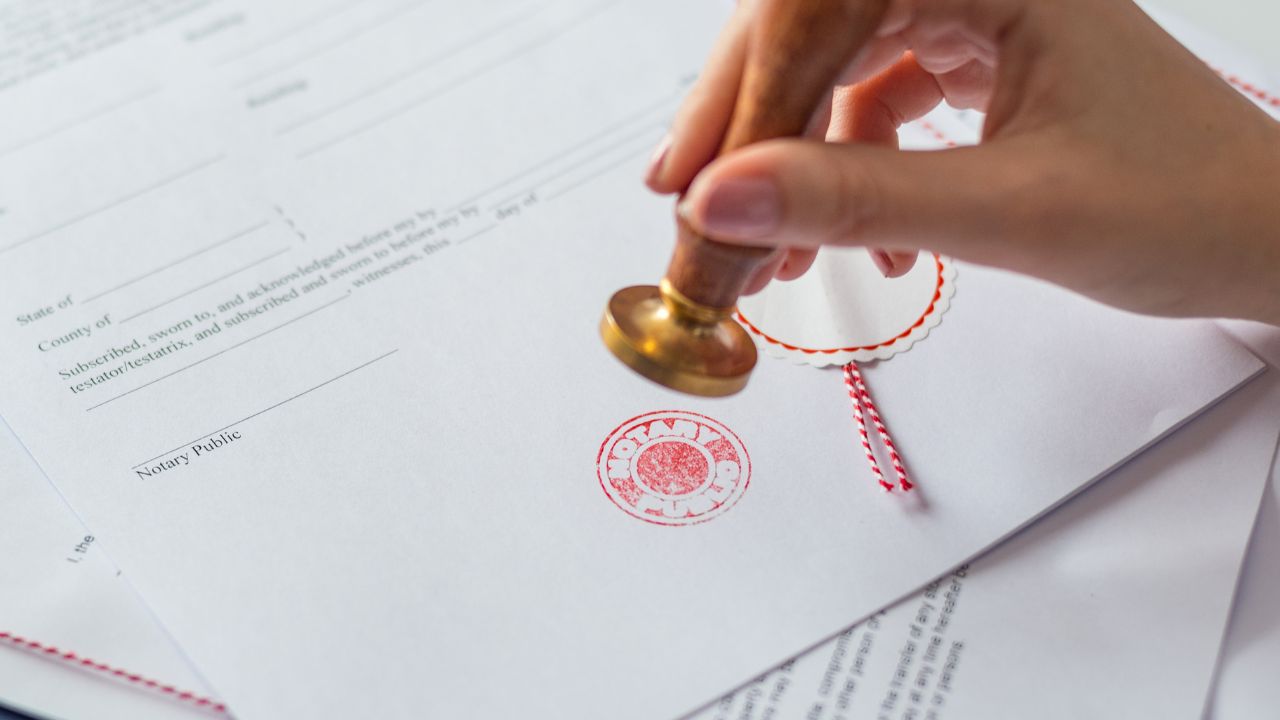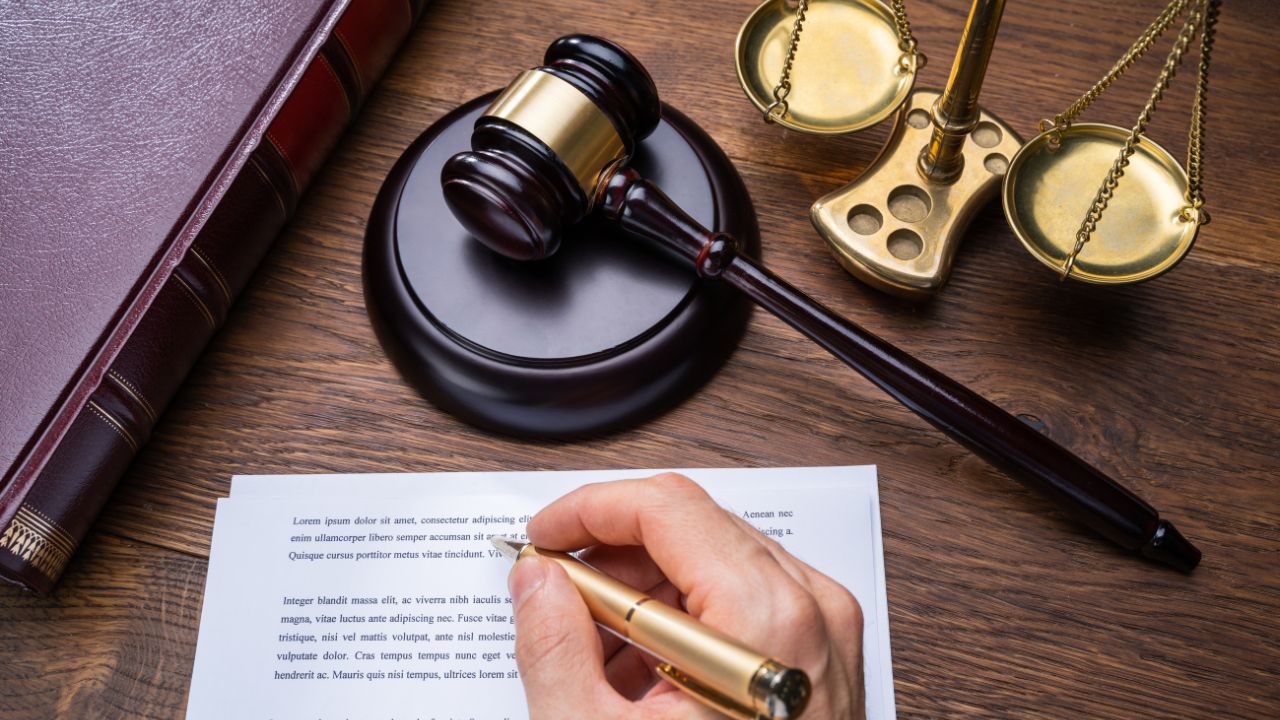This Power of Attorney guide explores how NRIs can empower another individual to act in legal matters on their behalf in India.
A power of attorney (PoA) is a legal document that forms part of estate planning yet one of the most misunderstood. A PoA will allow an individual Non-Resident Indians (NRIs) to delegate his/her powers to another individual to act on their behalf in India. It is often convenient or maybe even necessary to have someone else act for you as there is advancement in personal, business or commerce transactions. Non-Resident Indians (NRI’s) or Persons of Indian Origin (PIO’s) are familiar with the concept of a PoA document as they often inherit or own Indian property whilst being based outside of India.
As many people confuse the power of attorney (PoA) with a Will (Probate), but these documents are two very different things and have two very different functions. A Will comes into effect on the day a person dies. A PoA applies during a person’s lifetime and ceases to apply when he/she dies. So you need both a PoA and a Will as they complement, and do not overlap, each other.
Table of contents:
- What is a Power of Attorney?
- Why do you need a Power of Attorney?
- What can you do through a Power of Attorney?
- Terms you need to know when drafting a Power of Attorney
- What are the different types of Power of Attorney?
- Power of Attorney by more than one person
- What is the difference between a General Power of Attorney and a Special Power of Attorney?
- What are the differences between a durable and a non-durable Power of Attorney?
- Important Clauses for a Power of Attorney
- What is an NRI Power of Attorney?
- How can a Power of Attorney be executed in India?
- How can a Power of Attorney be executed outside of India?
- Registration of Power of Attorney in India
- Regulation of Power Of Attorney
- How to revoke an NRI Power of Attorney?
- Can I see my Indian property through a Power of Attorney?
1. What is a Power of Attorney?
A PoA is an authority given by a written formal instrument whereby one person termed the donor or principal authorises another person termed the donee, attorney or agent, to act on his/her behalf. A Power of Attorney is a legal document by which one person gives the right to perform or powers of transacting in matters relating to a property, banking, legal and judicial proceedings, tax payments, etc, to another person due to certain reasons like being out of the country, or getting old, or not able to look after one’s duties in those matters etc.
The Indian Stamps Act defines it as “any instrument empowering any specified person to act for and in the name of the person executing it”.
Despite there being a specific act pertaining to a Power of attorney, it is very precise and brief, the basic principles of this document are governed by the law of agency as provided for in the Indian Contract Act. A power of attorney may be of two types General or Specific/Special. The test to determine under which category a given document falls is as to what is the subject matter in respect of which power is given and if it is restricted to some specific matter it is specific else it is general.
2. Why do you need a Power of Attorney?
Usually, a PoA is created by NRI’s who cannot carry out transactions in person by themselves due to various reasons. The following are the reasons that commonly force an individual to give the power of performing to another person. The principal may be:
- out of the country due to personal or business-related reasons
- suffering due to ill health and/or a disability
- unable to travel due to a disability
- old age or senior citizens
- or any other reason for being unable to conduct the transactions personally.
3. What can you do through a power of attorney?
A PoA can be created for empowering the agent for:
- Dealing with financial matters such as Mortgage, exchange, sell, lease, collect rent, grant, borrowing
- Property matters such as managing and settle the disputes in the court of law or otherwise
- Perform the acts as required by banks, insurance companies and enter into contracts, deal with bonds, etc.
- Company or commercial matters.

4. Terms you need to know when drafting a Power of Attorney
The following are some commonly used terms in a PoA document:
- acknowledgment – A statement, written or oral, made before a person authorized by law to administer oaths (such as a notary public)
- affidavit – A person’s written statement of facts, signed under oath before a person authorized to administer oaths (such as a notary public or court clerk)
- Attorney/Agent/Donee- The person to whom the power is granted is termed the Attorney or agent or donee.
- conservator of the estate – If you don’t have a power of attorney and you become mentally incapacitated, a court may appoint someone to make financial decisions on your behalf. This person is called a “conservator” or “conservator of the estate”
- creditor – A person or institution to whom money is owed
- debtor – A person or institution who owes money.
- decedent – A person who has died
- donee – One who is the recipient of a donation
- estate – Everything you own at the time of your death, including any property or other valuable items
- execute – To sign a legal document in the legally required manner (e.g., before witnesses or a notary public), thereby making it effective
- executor – The person you nominate to make decisions on behalf of your estate after your death
- fiduciary – A person having a duty, created by his or her own undertaking, to act primarily for the benefit of another
- general power of attorney – A power of attorney that gives the agent very broad powers, generally to conduct all kinds of business on behalf of the principal
- guardian of the person – A person who is authorized by a court, pursuant to a guardianship proceeding, to make decisions regarding the care of another person.
- guardian of the property – A person who is authorized by a court, pursuant to a guardianship proceeding, to handle the financial affairs of another person
- guardianship – (1) A legal proceeding to determine whether a person is legally incompetent and should have a guardian appointed to care for the person or the person’s financial matters. (2) The legal relationship between a guardian and a ward
- incapacitated, incapacity or mental incapacity – To be mentally unable to make intelligent, informed decisions, or mentally or physically unable to communicate
- incompetent, incompetence or incompetency – A person is incompetent if he or she has been judicially determined to lack the capacity to manage at least some of his or her property, or to meet at least some of the essential health and safety requirements of taking care of one’s self
- institution – Any type of business entity (e.g., corporation, partnership, limited liability company), organization or other entity other than an individual person
- intestate – When a person dies without leaving a will
- joint tenancy – A way for two or more people to own property, so that when one owner dies, his or her interest in the property passes automatically to the remaining owner or owners
- lessee – One who rents property from another
- lessor – One who rents property to another
- notary public – A person who is legally authorized by the state to acknowledge signatures on legal documents
- Principal/Grantor/Donor- The person who grants the power to the other person to act on his behalf is termed the grantor or principal or donor.
- proxy – See agent
- revocation – The recalling or cancellation of a previously granted power
- successor attorney-in-fact – If the person you originally appointed as your attorney-in-fact dies, resigns, is removed, or becomes legally disabled, a new person will assume his or her position as attorney-in-fact. This person is called a successor attorney-in-fact
- third party – As used in this material, a party who is neither a principal nor an agent under a power of attorney
- ward – A person who has been declared incompetent and has a guardian appointed.
5. What are the different types of Power of Attorney?
There are mainly two types of Power of Attorneys used by Non-Resident Indians (NRIs) or Persons of Indian Origin (PIO) to conduct their legal affairs in India during their absence:
General Power of Attorney (GPA) – A person can give to another person a complete general right or power to act lawfully with respect to his property or bank accounts or tax payments, or registration of documents or to sue a third party etc. Hence, this type of document is termed a General Power of Attorney.
A General Power of Attorney can either be given individually to handle each matter, such as property, banking, tax matters, registration, litigation, etc, or a single General Power of Attorney can be given to handle all matters. Understandably, this type of PoA carries a wide array of powers and should only be used where a trustworthy person is in place.
Special Power of Attorney (SPA) – A Special Power of Attorney is given with respect to a specific task or work. Once the particular task or act is complete, the Special Power of Attorney comes to an end. For example, to appear before the tax authorities.
But in a Special Power of Attorney, only one act among the above-mentioned acts is to be performed. You cannot create a Special Power of Attorney for many acts. In that case, you have to create separate Special Power of Attorney deeds for each act.
6. Power of Attorney by more than one Non-Resident Indian
In a situation where multiple NRI donees or principals are involved, a Power of attorney can be made by numerous individuals empowering one person in the same document. For example where there are 4 joint owners of disputed property and they need to elect a representative to act on their behalf during the litigation process in their absence as they permanently reside outside of India.
7. What is the difference between a General Power of Attorney and a Special Power of Attorney?
A General Power of Attorney is very much different from a Special Power of Attorney. The GPA always confers a general power of performing while the Special power of Attorney confers only a specific power to perform any particular act or task.
The GPA covers a wide range of powers and is not restricted to any particular work. Hence, it needs to be given only to a very trustworthy person. The Special power on the other hand comes to an end once the task or specific act is done and is always work specifically.
A person can authorise the Attorney to sell, buy, rent out, recover his debts, open bank accounts, close accounts, attend the courts, appear on behalf of the principal in legal matters or file tax returns etc under the General powers. It is not restrictive.
8. What are the differences between a durable and a non-durable Power of Attorney
Typically, a Power of Attorney terminates upon the death of the Principal, as the authority granted to the Attorney ceases to exist.
However, if the Principal wishes for the POA to remain effective even after the Attorney’s death, this intention must be explicitly stated in the deed. Such a provision allows for the appointment of a successor Attorney and is commonly referred to as a Durable Power of Attorney.
If no such provision is included, the POA is considered non-durable and automatically ceases to exist upon the Attorney’s death. Similarly, all POAs, whether durable or non-durable, terminate with the death of the Principal.
9. Important Clauses to include in a Power of Attorney
If you are dealing with a legal issue that requires a Power of Attorney, we strongly recommend that you seek advice from a legal professional. While drafting a PoA it is important to include certain clauses depending upon the type of PoA that is made. Some of the essential clauses that need to be included in the Power of Attorney deed are as follows:
- The name, age, address and occupation of the person who makes the Power of Attorney, the principal or donor.
- The person to whom the power is granted, the attorney or the agent.
- The reason for granting the PoA which should be legally valid.
- The date and place of making the PoA deed and the date from which it comes into force.
- The date of termination of the PoA if it is limited by time.
- If it is a general power granted then all the acts and areas of granting the power should be mentioned clearly. Whether any particular act is not to be done by the Attorney in certain areas should be specified. For. Eg. If general power for property is granted, the Principal can grant the power to buy or rent any property but may not grant the power to sell any of his property.
- In a Special Power of Attorney, the specific or particular act or task that needs to be done and completed by the attorney is to be clearly mentioned. Also the time limit within which that act is to be done is also to be specified.
10. What is an NRI Power of Attorney?
An NRI (Non-Resident Indian) can make a Power of Attorney deed even by staying outside India without having to visit India for that purpose. Most NRIs have properties and banking transactions in India which may require their presence while transactions happen. But it is often not possible to come to India for each such transaction and for prolonged periods of time. For this then NRIs can always give the powers to transact to another person who is either a family member or a friend.
The main difference between an NRI PoA and a normal PoA is the way it is legalised in the country of residence of the NRI. For example, if the NRI resides in the UK, he/she will have to have the PoA legalised by the Indian High Commission.
The procedure to be followed by NRIs while making a Power of Attorney deed is simple as follows (It is strongly recommended that you contact the local authorities to find out or seek advice from a legal professional. There may be a difference between the written procedure/law and accepted practice):
- Draft the PoA
- Go to the Indian Embassy or Consulate in the country of residence and get it stamped and sealed from the embassy. Or you can get it notarized by a Public Notary in that country mentioning the notary registration number on the seal on each page of the document. The method of legalisation will largely depend on the local laws of where the PoA is intended to be used.
- Send the attested deed by registered post to your Attorney in India.
- The Attorney in India should get it registered in India at a Sub-Registrar office or Sub-Divisional Magistrate office by paying the appropriate registration charges applicable in that state.
- Now the PoA is ready to be used for the intended purpose.
For more comprehensive guidance, advice or support, please contact a member of our team today. We will provide a free no-obligation initial assessment on your situation. Fill in our online contact form and a member of our team will get in touch with you.
11. How can a Power of Attorney be executed in India?
If an NRI is present in India, he could before going abroad execute the PoA from India itself. This would be a relatively simpler process than executing a PoA from outside of India. The following are steps to execute a PoA from within India:
- The NRI needs to get the desired matter of the PoA professionally drafted and typed on non-judicial stamp paper of adequate value which is generally Rs 100.
- Along with the legal representative and two witnesses, the person is now required to visit the Sub-Registrar’s Office in the relevant location.
- It should be ensured that all the persons going to the Sub-Registrar’s Office are carrying their valid identity proof. Both originals and photocopies of documents should be taken.
- At the Sub-Registrar’s office signatures, photographs and fingerprints of the party will be collected.
- Collect the registered PoA on the due date from the Sub-Registrar’s Office.
- Now the PoA is ready to be used for the intended purpose.
12. How can a Power of Attorney be executed outside of India?
If you are settled abroad and won’t be able to visit India in the near future, you may execute a PoA from the country of your domicile through the Indian Embassy/ Consulate. The following are steps to execute a PoA from outside of India:
- Drafting of the PoA by a qualified professional.
- Have it notarised by a Notary Public in the presence of two witnesses
- Now there are two ways to proceed depending on the type of PoA:
- Legalisation: After obtaining signatures of the notary public before whom the PoA is executed, the notary stamp is required to be authenticated by the duly accredited representative of the Indian Embassy/Consulate. After it has been legalised by the Embassy, it needs to be stamped within three months from the date of receipt of the PoA in India. Stamp duty would be payable according to Section 2(17) read with Schedule-I of the Indian Stamp Act, 1899, when the deed is presented for registration in India.
- Apostalisation: A PoA that is intended to be used for commercial or company-related matters must be apostilled from the relevant state officials. An apostilled copy is a certificate from the state officials verifying that the notarised copy of the PoA is valid. After the documents have been apostilled, there is no need to get it attested from the Indian Consulate. The deed of PoA executed outside India is proven through an apostallisation process which is governed by the Hague Convention, 1961. Also known as super legalisation, an apostille is a certificate which confirms and verifies the signature/seal of the person who authenticated the document. However, this deed, too, needs to comply with Indian laws such as the Indian Registration Act, 1908, and the Power of Attorney Act, 1882. You also have to pay the stamp duty on this.
- Send the attested deed by registered post to your Attorney in India.
- The Attorney in India should get it registered in India at a Sub-Registrar office or Sub-Divisional Magistrate office by paying the appropriate registration charges applicable in that state.
- Now the PoA is ready to be used for the intended purpose.
13. Registration of Power of Attorney in India
A foreign PoA should be stamped by the Collector after its receipt in India within the prescribed time of 3 months of notarization or legalisation. Otherwise, it may not be accepted and it will have to be redrafted.
The registration of a PoA authenticates a PoA, however, registration of PoA is not compulsory. If a power of attorney is in respect of immovable property of value more than INR 100 it must be registered. In India, where the Registration Act, 1908, is in force, the Power of Attorney should be authenticated by a Sub Registrar only, (Whenever a person signs the document and his attorney presents/ admits execution). In other areas, attestation should be by a Notary or diplomatic agents
In case an attorney under a valid PoA himself signs a document, he may, as an executing (signing) party present/admit execution of a document though it is attested by a Notary unless the text of the power specifically excludes such powers.
14. Regulation of Power Of Attorney
A PoA deed should be interpreted to include all the necessary powers for its execution. The PoA has to be given a strict interpretation and no extra rights should be construed unless they are specifically mentioned. For instance, if the PoA mentions “right to lease”, the “right to sell” can’t be attributed to it.
The representative/agent/attorney has to act within his scope and cannot bind the principal by his acts that are beyond his authority. As an NRI, you can’t be sued or held responsible for the fraud of the representative, unless it is proved that the fraud was done in connivance with you.
If the principal thinks that the legal representative is misusing the power granted to him or is unable to properly discharge the duties assigned to him, he has the option to revoke the PoA. Revocation might also be required if the principal thinks that now he is in a position to take care of his assets.
15. How to revoke an NRI Power Of Attorney?
In effect revocation means a cancellation of the PoA and all of the powers along with it with immediate effect. A PoA can be revoked in writing at any time due to any reason during the lifetime of the principal. Other instances where a PoA may be revoked are when the principal dies or becomes insane or is declared insolvent. Or a PoA can be revoked on mutually agreed terms between the principal and the representative. Also a PoA is revoked when the specific transaction for which it was executed has been accomplished.
Revocation of PoA has to be done in the same manner in which it was executed. For example, if the PoA was registered with the Sub-Registrar, it will have to be cancelled from the same office. Also, the representative and the parties concerned need to be duly informed about the cancellation of the PoA through an official letter of notice. If the interests of a reasonably large number of people are involved, it is recommended that a notice be published in a newspaper. A notice about the revocation of the PoA could also be posted on the property where it can be visible to the general public.
Further, an agent may also refuse to act on behalf of the principal and may revoke the PoA accordingly.
16. Can I sell my Indian property through a Power of Attorney?
When it comes to buying or selling a property Power of Attorney is not a valid instrument to transfer property titles. A sale deed must be carried out for transferring property titles, following which the buyer has to pay stamp duty and registration charges. There have been many cases where people resort to property sale through PoA to avoid payment of stamp duty, which is illegal. Proper transfer of title and ownership cannot take place if the sale is done through a PoA and not by means of a sale deed.
We strongly recommend Non-Resident Indians seek professional legal advice from an experienced advisor when drafting a Power of Attorney.
Related posts
- Sending a Power of Attorney from the UK to India
- The Real Cost of of an NRI Power of Attorney
- Top 5 NRI Power of Attorney mistakes to avoid
- Pros and Cons of an NRI General Power of Attorney
Frequently asked questions
Draft the power of attorney as per Indian Law to include all of the powers that you wish to delegate. Then sign the POA in the presence of a Notary Public. Further, have it legalised by the Indian Embassy in your country and then finally register the POA with the local authorities in India.
The Indian Registration Act 1908 does not require a power of attorney to be registered. However, the Supreme court has ruled that a power of attorney given to sell immovable properties should be registered. In 2011, the Supreme Court ruled that property sale through power of attorney (PoA) is illegal and only registered sale deeds provide any legal holding to property transactions
Unless specified, a power of attorney will be valid until cancelled or until the demise of the grantor (person giving the power of attorney)
An unregistered Power of Attorney is invalid for the execution of a sale deed for immovable properties.






